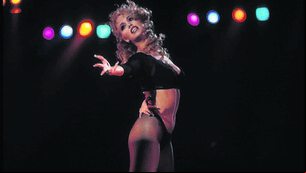Stevie G: Digital didn’t kill the record store

some cassettes, tapes and records from Stevie's studio
I recently started converting lots of old cassette tapes to a digital format, in order to share old pirate radio shows and club gigs from the ’90s to a wider audience.
Cassette tape was never the optimum format really, but there is undeniably something very special about it. It was obviously more compact and portable than vinyl and tapes far easier and safer to carry around.
The Walkman helped define much of the ’80s and ’90s for music fans, and there was something special about listening to a tape on the bus or walking around. It was a nightmare trying to find tracks on a cassette so many people left the music playing rather than rewinding or fast forwarding and this helped us discover lots of music in more depth. Mixtapes became a cornerstone of music culture and were one of the main promotional tools for me and other DJs growing up.
Listening back to these old radio shows and gigs these last few weeks has been interesting for me, and got me feeling slightly nostalgic for the cassette format.
The sound quality wasn’t as good, and the impracticality of it was annoying, but like vinyl, it remains a format steeped in culture and history and sometimes the raw crackles of cassette make the music even better.
By about ’98 and ’99, I started recording my shows on MiniDisc, a much-maligned industry format that never really took off commercially. MiniDisc players were a sign of what was to come digitally, but never crossed over to the mainstream, but suddenly we had accessible digital recording and it became even easier for me to catalog shows. I brought a tiny player with me that recorded everything.
When RedFM opened in the early 2000s they were equipped with CD, MiniDisc players and even Technics turntables, but within a few years they, like the industry as a whole, had moved fully digital. By this time the iPod had taken over as a personal listening device, but soon even ing music through legal or illicit means became é for the masses! This was an era when the industry got turned upside down by Napster and other file-sharing sites, and the record companies were scrambling to catch up.
For the major labels, they eventually moved with the times, and now they police piracy quite heavily. The internet is no longer the wild west music-wise, and most people stream music for a relatively small cost, compared to what it was before. Sadly, it’s still a struggle for many artists and labels, but in this digital streaming era, vinyl, and even cassettes, have been rejuvenated by some labels.
The vinyl revival was initially niche, but now it’s truly mainstream and forms a huge part of income for major record companies once again. It was DJs and independent labels and ionate music fans and record shops who kept vinyl alive when it was most unfashionable, and while it remains an expensive ion for us all, it’s a format that is beautiful for many reasons.
It’s great that we still have many record shops in Cork in 2025, and it’s even better that they sell actual records!







